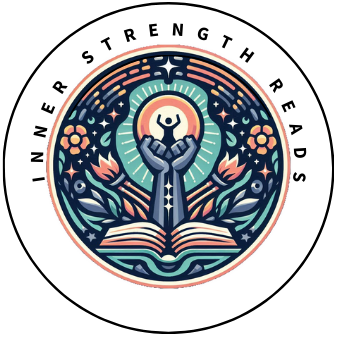
Emotional intelligence, or EI, isn’t just some buzzword you’ll find in self-help books. It’s a crucial aspect of personal development that affects almost every part of our lives. EI involves the ability to understand, use, and manage your own emotions in positive ways to communicate effectively, empathize with others, and overcome challenges.
Boosting EI is something anyone can work on with little effort and practice. It starts with being more aware of your own emotions and those of the people around you. Try paying attention to what you’re feeling at various moments throughout the day, and keep track of triggers that affect your mood. This awareness can help in navigating through feelings more constructively.
Imagine this: you’re in a heated meeting at work, feeling frustrated. Instead of snapping, you take a step back and breathe, assessing the situation calmly. That’s EI in action right there, and it keeps you from saying things you might regret later. Enhancing your EI in such situations can strengthen relationships and improve your professional life.
Real-life examples often help to illustrate how a high level of EI can be beneficial. Take famous entrepreneurs who are known not only for their business acumen but also their people skills. They aren’t just crunching numbers; they’re listening, empathizing, and connecting with others on a personal level.
To start working on your EI, consider exercises like meditation or journaling. These practices promote emotional awareness and regulation. You could also engage in role-playing scenarios to better understand how to respond empathetically and effectively during interactions. Remember, EI is like a muscle—the more you use it, the stronger it gets.
Cultivating Robust Habits: The Power of Consistency
Building habits that align with your personal values and goals is like setting the foundation for a sturdy house. Consistent habits shape our days, and eventually, our entire lives. It’s the little things we do over and over again that determine whether we reach our goals or stay stuck in the same spot.
Ever heard the saying, “You’ve gotta start somewhere”? That’s the mantra here. Begin by identifying habits that resonate with your personal values and life goals. Maybe it’s waking up an hour earlier to get a jumpstart on your day or setting aside time for daily reading. Once you decide what habits align with your larger vision, you can focus on making them second nature.
Structuring your days around your habits can make them stick. Creating a routine doesn’t just keep you on track; it also frees up mental energy for other decisions. Having that set time every day for a workout or quiet meditation means one less thing to think about, allowing you to focus on other tasks.
Sometimes, gadgets or apps might be your best friends in this journey. Use habit-tracking apps to stay accountable. They remind you of your progress and give a sense of accomplishment when you check off another day of keeping up with your new habit. Little victories fuel bigger successes.
Look around you. Many successful individuals have transformed their lives by consistently sticking to positive habits. Think of that entrepreneur who swears by his morning run or that author who writes a few pages every day without fail. These habits, performed with consistency, have allowed them to achieve significant milestones.
It’s important to remember that building these robust habits takes time and patience. And when you miss a day, cut yourself some slack. The key is to get back on track as soon as possible without being too hard on yourself.
Advancing Communication Skills: Key to Building Relationships
Communication skills are your golden ticket to better relationships and opportunities in both personal and professional arenas. Understanding different communication styles can be an eye-opener. Whether you’re dealing with a chatty colleague or a reserved friend, adapt your style to connect more effectively.
Ever found yourself nodding along, but not really listening? Active listening is a game-changer in any conversation. It’s not just about hearing words; it’s about really understanding what’s being said. When you make an effort to listen actively, you show empathy and create a deeper connection.
Effective communication skills can lead to big wins. It might be landing that job because your interview was more of a dialogue than a Q&A session, or resolving a conflict with a friend by just talking it out. Good communication fosters understanding and strengthens bonds.
Sometimes, barriers get in the way—like cultural differences or preconceived notions. Breaking these down can enhance the way you interact with others. For instance, simple strategies like clarifying doubts during conversations and maintaining open body language can go a long way.
Take cues from folks who are skilled communicators. They don’t just talk; they connect, engage, and leave a positive impression. To level up your skills, engage in activities like joining public speaking groups or participating in workshops. It’s all about practice and finding opportunities to communicate more effectively.
Embracing a Growth Mindset: Unlocking Potential and Overcoming Challenges
Embracing a growth mindset is all about believing that your abilities and intelligence can develop with effort and the right strategies. This mindset can be the key differentiator in overcoming challenges and unlocking your potential.
Understanding the difference between fixed and growth mindsets is crucial. It’s like choosing between believing you’re stuck with what you’ve got versus seeing every hurdle as a new learning opportunity. When you shift to a growth perspective, challenges become exciting rather than intimidating.
A growth mindset isn’t just for the workplace or schools; it applies to all areas of life. Let’s say you’re trying to pick up a new language or learn to play an instrument. Sure, it’s frustrating when progress is slow, but with a growth mindset, every mistake turns into a stepping stone.
There are countless stories of people who have achieved remarkable success by developing a growth mindset. Think of athletes who didn’t make the cut initially but went on to break records, simply because they didn’t see their failures as the final word on their capabilities.
Steps to develop a growth mindset can start with embracing challenges and viewing setbacks as opportunities to learn. Even if something doesn’t go as planned, what matters is what you take away from the experience. Keeping this outlook helps in staying positive and resilient.
The journey to maintaining a growth-oriented outlook can have its ups and downs. Even when setbacks occur, it’s all about keeping your sight on the big picture and being open to learning. Surrounding yourself with positive influences and seeking feedback can also support your growth mindset journey.
